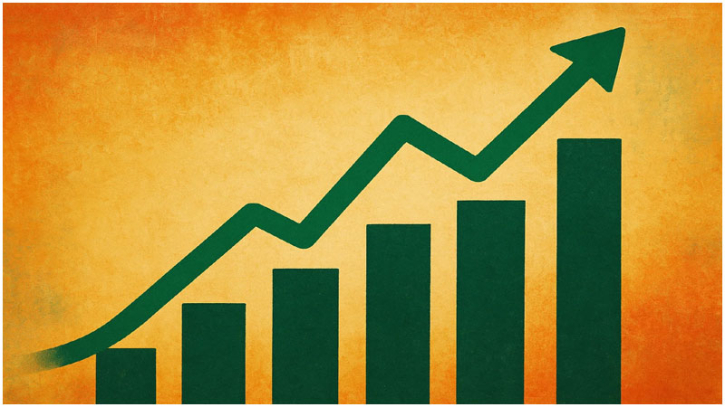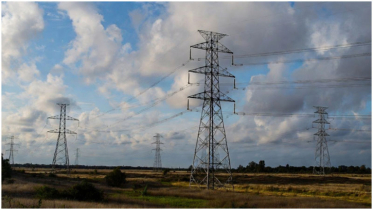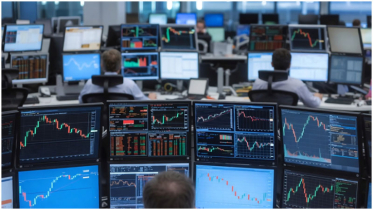Asian stocks climb amid hopes for trade deal progress

Asian markets mostly rose on Thursday, buoyed by investor optimism that global governments will reach agreements to soften the impact of U.S. President Donald Trump’s escalating tariff threats.
Despite Trump expanding the scope of his trade measures, investors appeared confident that negotiations could prevent the worst outcomes. Talks have been ongoing since the president announced his sweeping “Liberation Day” tariff plan in April, with a key deadline recently delayed from July 9 to August 1.
In recent days, the U.S. has sent letters to over 20 trade partners — including Japan and South Korea — outlining updated tariff rates. Some duties are expected to be higher than originally proposed, while others will be reduced.
Trump this week added more uncertainty by proposing a 50% tariff on copper imports and considering a staggering 200% levy on pharmaceuticals. However, analysts view many of these threats as bargaining tactics rather than imminent policies.
Markets have so far taken the rhetoric in stride. The S&P 500 and Nasdaq both reached record highs in New York, driven in part by strong gains in tech, particularly a surge in Nvidia that briefly pushed its market value to $4 trillion.
David Chao, global market strategist for Asia Pacific at Invesco, expressed optimism about the region's resilience. "Even if the U.S. raises tariffs on Asia, the region is well-positioned to manage the fallout," he said, noting that a weaker dollar could give Asian central banks more leeway to ease monetary policy without risking currency instability.
Asian equities followed Wall Street’s positive lead, with gains in Hong Kong, Shanghai, Sydney, Singapore, Seoul, Taipei, Manila, and Jakarta. Tokyo edged slightly lower, while Wellington also dipped.
The upbeat sentiment also boosted bitcoin, which surpassed $112,000 for the first time.
Meanwhile, markets barely reacted to news that Trump had slapped a 50% tariff on Brazilian imports. The move came as he criticized Brazil’s handling of former president Jair Bolsonaro’s ongoing trial, calling it an “international disgrace” in a letter to current President Luiz Inacio Lula da Silva. Lula responded by announcing reciprocal tariffs on U.S. goods.
Brazil, notably, was not initially among the countries targeted by the new round of duties, and the U.S. currently runs a trade surplus with the country.
Investors also found little new guidance from the Federal Reserve, as minutes from its June policy meeting revealed a split among officials over interest rate policy. Fed Chair Jerome Powell has adopted a cautious stance on rate cuts — a position that has drawn criticism from Trump, who said rates remain “at least” three percentage points too high.
While Fed officials acknowledged the inflationary potential of tariffs, they noted significant uncertainty about the magnitude and timing of those effects. Some companies might absorb costs initially rather than pass them on to consumers, but prolonged supply chain disruptions could drive prices higher over time.
"While a few participants saw tariffs as a temporary price shock, most warned they could have more lasting effects on inflation," the minutes stated.
Key figures at around 0230 GMT
Tokyo - Nikkei 225: DOWN 0.5% at 39,610.61 (break)
Hong Kong - Hang Seng Index: UP 0.2% at 23,938.07
Shanghai - Composite: UP 0.3% at 3,503.13
Euro/dollar: UP at $1.1741 from $1.1719 on Wednesday
Pound/dollar: UP at $1.3608 from $1.3590
Dollar/yen: DOWN at 145.95 yen from 146.30 yen
Euro/pound: UP at 86.28 pence from 86.21 pence
West Texas Intermediate: DOWN 0.2% at $68.28 per barrel
Brent North Sea Crude: DOWN 0.1% at $70.15 per barrel
New York - Dow: UP 0.5% at 44,458.30 (close)
London - FTSE 100: UP 0.2% at 8,867.02 (close)
.png)




